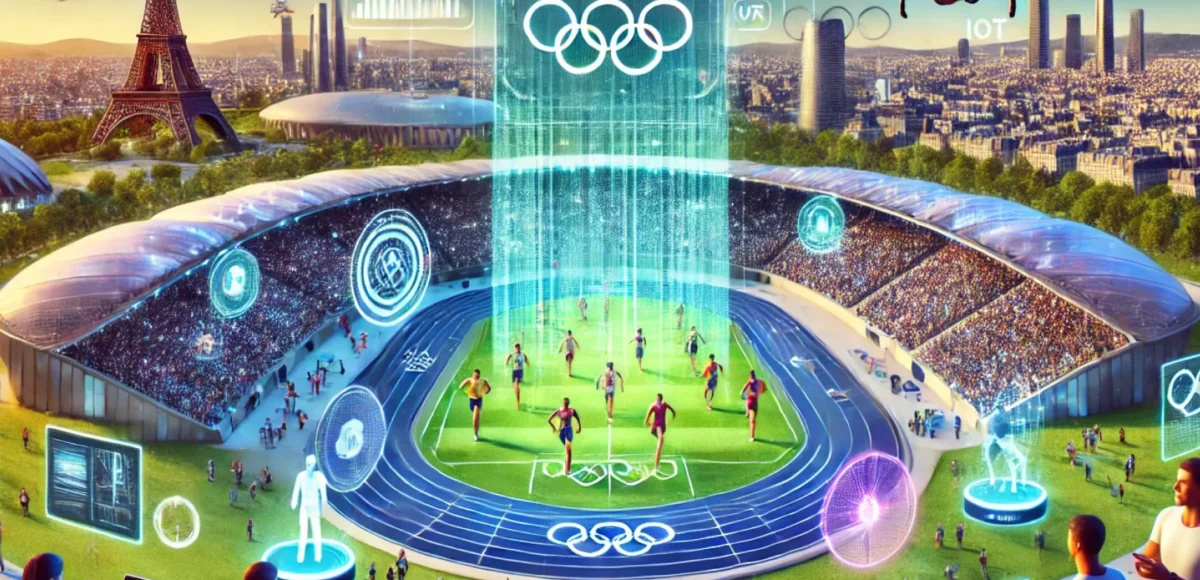
- 5 August 2024
Data Science in Sports: Revolutionizing the Paris 2024 Olympics
In recent years, data science in sports has revolutionized how athletes train, perform, and compete. As we approach the Paris 2024 Olympics, the importance of integrating data science continues to grow. This cutting-edge technology not only enhances athletic performance but also ensures operational efficiency and sustainable practices throughout the event.
The Olympic Games began in ancient Greece in 776 BC in Olympia and occurred every four years. These games provided a significant opportunity for athletes to showcase their physical abilities and compete in various sports during periods of peace among the Greek city-states. The disciplines included running, long jump, shot put, javelin, boxing, and equestrian events. Pierre de Coubertin revived the modern Olympics in 1896 and held the first event in Athens, marking a new era of international athletic competition. Since then, the Olympic Games have united athletes from around the world, symbolizing peace, friendship, and cultural unity.

This tradition continues with the Paris 2024 Olympics, starting in July. The Paris 2024 Olympics stand out not only as a stage for athletes to showcase their talents but also because of the innovative solutions that data science and data analytics offer. This article explores the role of data science in the Paris 2024 Olympics, the technologies in use, and how these technologies enhance efficiency. We will focus on sports performance analysis, improving spectator experience, operational efficiency, and health and safety management.
Performance Analysis with Data Science in Sports
Data science, an amalgamation of statistics, mathematics, and computer science, has rapidly evolved over the last few decades. With the widespread use of computers in the 1960s, researchers increased the capacity for data collection and analysis. The advent of big data in the early 2000s brought revolutionary developments in data science. Today, professionals in various fields, including business, healthcare, sports, and education, use data science and analytics to make critical decisions.

Nowadays, coaches and analysts use data science to maximize athletes’ performance. At the Paris 2024 Olympics, they analyze athletes’ training data, biometric data, and past performance records to create personalized training programs. These analyses help them identify athletes’ weaknesses and focus on areas that need improvement. Additionally, real-time data analysis allows athletes to receive instant feedback during competitions and adjust their strategies accordingly.
For instance, in swimming competitions, coaches analyze entry angles, stroke frequencies, and turn speeds in real-time to optimize performance. Similarly, in athletics, they analyze runners’ stride lengths, speeds, and heart rate data to develop competition strategies. These data-driven analyses help athletes improve their performance by milliseconds.
Operational Efficiency Through Data Science in Sports
Operational efficiency is crucial in organizing large sports events. At the Paris 2024 Olympics, organizers use data analytics and artificial intelligence algorithms to optimize logistics, security, and other operational processes. For example, they analyze traffic data to increase the efficiency of transportation systems and minimize travel times. In security operations, analysts use machine learning algorithms to detect abnormal movements.
Additionally, managers use data analytics tools for the effective management of volunteers and staff, ensuring sufficient personnel are present at the right place and time, minimizing operational disruptions. Data science makes the management of large-scale events more efficient and seamless. Moreover, organizers use data analytics in environmental sustainability areas such as energy management and waste management.
Health and Safety Management
Health and safety management is critical in large-scale events like the Olympics. At the Paris 2024 Olympics, organizers use advanced data analytics and artificial intelligence technologies to protect the health of athletes and spectators. They continuously monitor athletes’ health data to enable the early detection of potential injuries and health issues, ensuring that athletes compete more safely and healthily.
For a detailed article, please visit INSTITUT PASTEUR.

Technological Infrastructure
The data science applications at the Paris 2024 Olympics require a robust technological infrastructure. In this context, cloud computing, big data platforms, and artificial intelligence algorithms play a crucial role. Technicians implement advanced cybersecurity measures to securely process and analyze the data of athletes and spectators.
Moreover, Internet of Things (IoT) devices enable real-time monitoring of stadiums and sports venues. These devices instantly collect and analyze data. For example, smart bracelets and sensors track and analyze athletes’ biometric data in real-time, helping optimize their performance and maintain their health.
Data Privacy and Security
With the widespread use of data science, data privacy and security have also become paramount. At the Paris 2024 Olympics, cybersecurity experts implement advanced measures to securely store and process collected data. They protect the privacy of personal data of athletes and spectators and prevent data breaches.
Additionally, organizers ensure compliance with international data protection laws such as GDPR (General Data Protection Regulation). They prioritize transparency and accountability in data collection, processing, and storage. Data owners receive information about how their data is used, and their requests for data deletion are honored when necessary.
Data Science in Sports: AI and Machine Learning Applications
Artificial intelligence and machine learning technologies play a significant role at the Paris 2024 Olympics. Experts deploy these applications in various areas, from sports performance analysis to spectator experience, operational efficiency, and health management. For example, analysts use machine learning algorithms to predict and optimize athletes’ performance. They analyze athletes’ past data to forecast future performance and adjust training programs accordingly.
Artificial intelligence-powered chatbots and virtual assistants enhance the spectator experience at the Paris 2024 Olympics. These assistants answer spectators’ questions, provide guidance, and offer personalized content recommendations. Additionally, security teams use artificial intelligence algorithms to analyze movements within the stadium and optimize crowd management and security operations.
In the video above, you can watch Kim Woojin, the Korean athlete who won the Gold Medal in Olympic Archery at the Paris 2024 Olympics, train with an AI-powered robot.
Environmental Sustainability
The Paris 2024 Olympics take significant steps in environmental sustainability by using data analytics and artificial intelligence in energy and waste management. Organizers continuously monitor and optimize the energy consumption of stadiums. Additionally, they use data analytics in waste management processes to increase recycling rates and minimize waste.
For example, smart energy management systems monitor stadium energy consumption in real-time, ensuring energy savings. Furthermore, sensors in waste management processes ensure proper waste separation and increase recycling rates. Consequently, these efforts make the Paris 2024 Olympics an exemplary event in environmental sustainability.
Conclusion
Data science and data analytics impact various areas at the Paris 2024 Olympics, from sports performance to spectator experience. Firstly, these technologies maximize athletes’ performance. Moreover, they offer a better experience for spectators and increase operational efficiency, making the Olympics more successful and impressive. Consequently, Paris 2024 stands out not only as a celebration of sports but also as an event where technology and innovation are celebrated.
Furthermore, this data science and analytics-enhanced experience will serve as a reference point for future sports events. Therefore, following the impacts of data science and technology in the sports world is crucial for both athletes and organizers. Today, large events like Euro 2024 or the Paris 2024 Olympics look much more competitive, entertaining, and safe, thanks to technology.
Don’t forget to follow us on our social media accounts!



